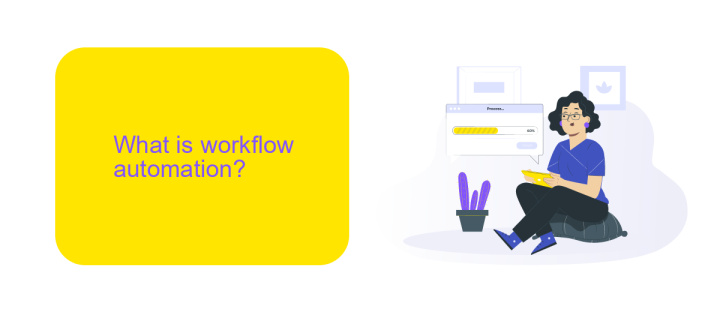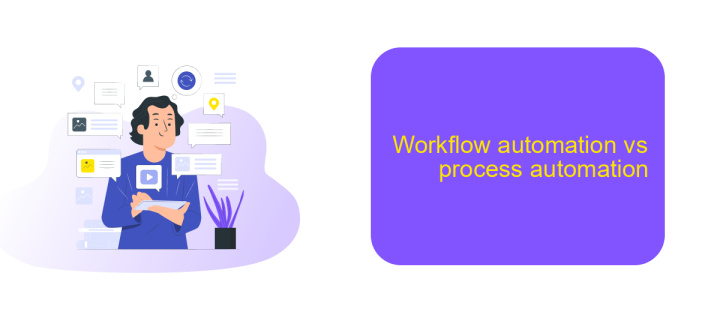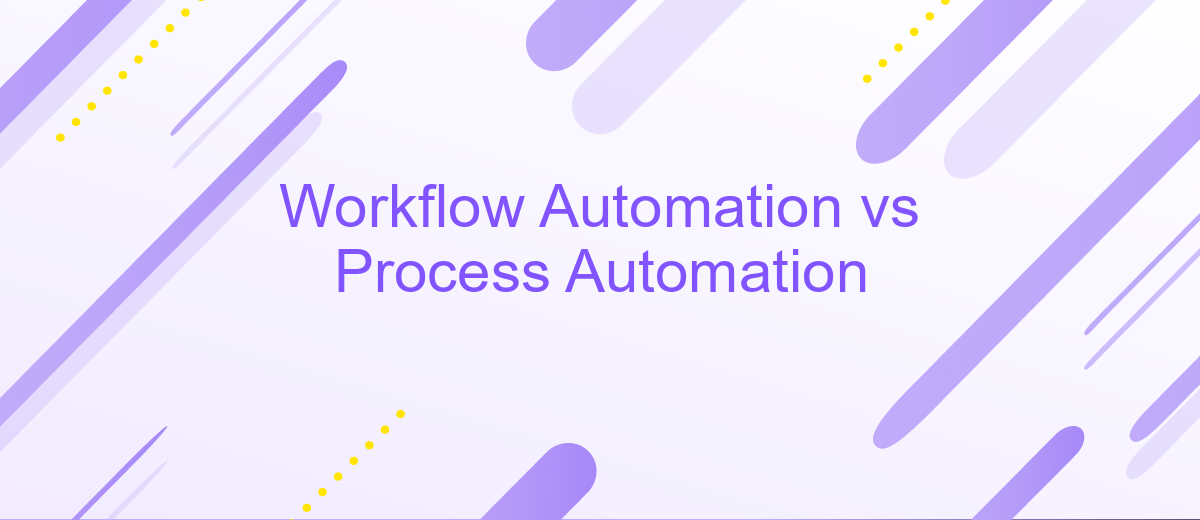Workflow Automation vs Process Automation
In today's fast-paced business environment, the terms "workflow automation" and "process automation" are often used interchangeably, yet they represent distinct concepts. Understanding the differences and unique benefits of each is crucial for organizations looking to optimize efficiency and productivity. This article explores the key distinctions between workflow automation and process automation, helping you make informed decisions for your business operations.
Introduction
In today's fast-paced business environment, the need for efficiency and streamlined operations is more critical than ever. Workflow automation and process automation are two powerful strategies that organizations employ to enhance productivity, reduce errors, and save time. While these terms are often used interchangeably, they represent different approaches to achieving operational excellence.
- Workflow Automation: Focuses on automating specific tasks within a workflow to ensure seamless transitions between different stages.
- Process Automation: Encompasses the automation of entire business processes, from start to finish, often involving multiple workflows and systems.
Understanding the distinctions between workflow automation and process automation is essential for businesses aiming to optimize their operations. Tools like ApiX-Drive can play a pivotal role in this context by providing robust integration capabilities, enabling seamless data flow between various applications and systems. By leveraging such tools, companies can achieve higher levels of automation, leading to increased efficiency and productivity.
What is workflow automation?

Workflow automation refers to the technology-driven process of streamlining and automating a series of tasks or activities within a business workflow. By leveraging software tools and platforms, organizations can reduce the need for manual intervention, thus minimizing errors, speeding up processes, and increasing overall efficiency. This type of automation typically involves defining a set of rules and conditions that trigger specific actions, ensuring that tasks are completed consistently and accurately.
One of the key benefits of workflow automation is its ability to integrate various systems and applications seamlessly. For instance, services like ApiX-Drive enable businesses to connect different software platforms, facilitating smooth data transfer and communication between them. This integration capability ensures that all parts of the workflow are synchronized, further enhancing productivity and reducing the likelihood of bottlenecks. As a result, employees can focus on more strategic tasks, leading to better resource allocation and improved business outcomes.
What is process automation?

Process automation is the use of technology to execute recurring tasks or processes in a business where manual effort can be replaced. This not only increases efficiency but also ensures consistency and reduces the likelihood of errors. By automating processes, businesses can focus on more strategic tasks, leading to improved productivity and cost savings.
- Identify repetitive tasks that can be automated.
- Select appropriate automation tools or software.
- Configure the automation to match your specific requirements.
- Test the automated process to ensure it works correctly.
- Monitor and optimize the process over time.
One of the key aspects of process automation is the integration of various systems and applications. Tools like ApiX-Drive can significantly streamline this process by enabling seamless integration between different platforms. This allows for a more cohesive workflow, ensuring that data flows smoothly across systems without manual intervention. By leveraging such tools, businesses can enhance their operational efficiency and maintain a competitive edge.
Workflow automation vs process automation

Workflow automation and process automation are often used interchangeably, but they serve distinct purposes in business operations. Workflow automation focuses on automating a series of tasks that are part of a larger process, streamlining the flow of work from one task to the next. This type of automation is ideal for improving efficiency and reducing manual intervention in routine tasks.
On the other hand, process automation aims to automate entire business processes, not just individual tasks. This involves integrating various systems and applications to ensure seamless operations across different departments. Process automation is more comprehensive and can significantly enhance overall productivity by optimizing end-to-end processes.
- Workflow Automation: Task-oriented, improves task efficiency.
- Process Automation: Process-oriented, enhances overall productivity.
- Integration: Critical for process automation, often requires tools like ApiX-Drive.
Choosing between workflow automation and process automation depends on your business needs. For task-specific improvements, workflow automation is suitable. However, for a holistic approach to optimizing business operations, process automation is the way to go. Tools like ApiX-Drive can facilitate these automations by providing seamless integration between various applications and systems.
Conclusion
In conclusion, while both workflow automation and process automation aim to enhance efficiency and reduce manual tasks, they serve different purposes within an organization. Workflow automation focuses on streamlining specific tasks and ensuring that they are completed in a consistent manner, often involving multiple systems and departments. On the other hand, process automation targets the optimization of entire processes, often leveraging advanced technologies like AI and machine learning to achieve end-to-end automation.
Choosing between workflow and process automation depends on the specific needs and goals of your organization. For seamless integration and automation of various tasks, services like ApiX-Drive can be invaluable. ApiX-Drive enables businesses to easily connect different applications and automate data transfer, ensuring smooth and efficient operations. Ultimately, the right choice will depend on the complexity and scope of the tasks or processes you aim to automate, but leveraging the right tools can significantly enhance productivity and operational efficiency.
FAQ
What is the difference between workflow automation and process automation?
Why should businesses consider implementing workflow automation?
Can both workflow automation and process automation be used together?
What are some common tools for implementing workflow and process automation?
How do I determine which type of automation my business needs?
Apix-Drive will help optimize business processes, save you from a lot of routine tasks and unnecessary costs for automation, attracting additional specialists. Try setting up a free test connection with ApiX-Drive and see for yourself. Now you have to think about where to invest the freed time and money!

